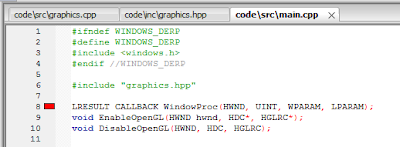Hygiene is super important when it comes to social interaction. Nobody wants to talk to you if you smell and/or look gross.
Even if you are mildly attractive. Let’s assume you don’t have that going for you.
Lack of hygiene is an issue at DigiPen, especially in the lower levels (Freshmen and Sophomore levels).
I did some “research” on why this might be the case.
I did some “research” on why this might be the case.
“Why the hell do all the Freshmen smell like dirty socks stuffed with old fish?”
I got a handful of answers and I’d like to go over them briefly:
Laziness
Apathy
Lack of Time
Laziness
Apathy
Lack of Time
If your issue with hygiene is laziness or apathy you're on your own. This blog is for people who want to be awesome.
Out of the three the one that can be most out of your control is lack of time. This makes sense with the trend of lower-classmen being the ones affected by this. It’s not that us upper-classmen have a crap-ton of time on our hands, we just manage our time more efficiently.
"I've got eight whole hours to do this assignment. I've got this!"
So, at best, this hygiene issue may be a time management issue. But this post isn’t about time management.. maybe later.. This post is about hygiene. So I’ve decided to focus on a few simple ways you can not be a gross person to be around. This list is by no means comprehensive but you won’t be a “shadow person” if you use these simple tools:
Deodorant:
What is deodorant for:
You sweat and stink so much as a human. If you put on deodorant you sweat less, and stink much less.
Why you aren’t putting on deodorant:
I assume it is because you hate me and everyone around you and never want to be successful on the social stage. Maybe you have a skin condition and are allergic. Turns out they make special deodorants for you. Maybe you don’t like the way your deodorant burns for the first few seconds after you use it.
Turns out that is just the horrible stink leaving your skin.
Alternatives:
There really is no excuse for not using deodorant, but there are a few situations where it doesn’t do its job properly and you are stuck as a smelly, stinky, sweaty victim. Here are some ways to avoid this:
Choose your clothing wisely
If you are going to be hiking in the hot sun, do not wear heavy cargo pants and a thick hoody. In fact, unless it is super cold outside, multiple layers are a recipe for sweaty disaster.
Use the proper amount
If you find that on a regular basis you have pit stains by lunch you may not be wearing enough deodorant. Copious amounts may be necessary.
Carry extra with you
Sometimes we get busy in the morning and forget, or we need to top off during a late night coding session. Keep some in your car/locker/bag.
Wash your underarms
If you ever get stuck in the situation where you have forgotten to put deodorant on and you have no access to deodorant you can always take a quick trip to the bathroom and use soap and paper towels to wash your pits. You’ll have to do this multiple times a day but it is better than being really stinky.
If you find that on a regular basis you have pit stains by lunch you may not be wearing enough deodorant. Copious amounts may be necessary.
Carry extra with you
Sometimes we get busy in the morning and forget, or we need to top off during a late night coding session. Keep some in your car/locker/bag.
Wash your underarms
If you ever get stuck in the situation where you have forgotten to put deodorant on and you have no access to deodorant you can always take a quick trip to the bathroom and use soap and paper towels to wash your pits. You’ll have to do this multiple times a day but it is better than being really stinky.
NEXT TIME on MY AWESOME BLOG:
Showering and Washing your hands










.jpg)












